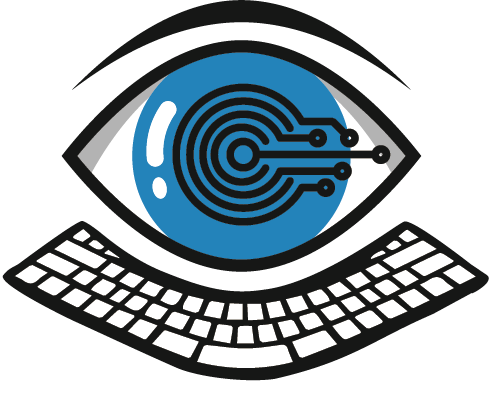
Top 10 Updated Cybersecurity Tips for Small Businesses in 2025
Share
As 2025 unfolds, small businesses face increasingly sophisticated cyber threats, accelerated by AI-driven attacks and evolving regulations. At Lifetime Computers, we understand the unique challenges you face. This guide delivers authoritative, trustworthy, and expert-led cybersecurity tips for small businesses—or consider it your go-to Cyber Guidance for Small Businesses and Cyber Security Suggestions for Small Businesses. Implementing these strategies will help safeguard your operations and build customer confidence.
1. Shift to a Proactive “Offensive Security” Mindset
Moving beyond traditional defense, businesses should adopt offensive security—pen testing and red teaming—to expose hidden vulnerabilities and build evidence-based defenses.
Why it matters: This proactive approach helps small businesses stay ahead of zero-hour AI threats.
2. Build a Resilient Security Culture and Human Firewall
Human error remains a top cause of breaches. A strong security culture—fueled by empathetic leadership, regular training, phishing simulations, and gamified drills—can dramatically reduce mistakes.
Why it matters: Empowered employees become your first line of defense.
3. Enforce Multi-Factor Authentication (MFA) Rigorously
MFA is now critical for securing admin and critical accounts. Don’t just ask—verify enrollment and compliance consistently.
Why it matters: Prevents a significant amount of credential-based attacks.
4. Apply Patches & Keep Software continuously Updated
Frequent updates close vulnerabilities. Prioritize fixes from sources like CISA’s Known Exploited Vulnerabilities and enable automatic updates wherever feasible.
Why it matters: Being patch-current is one of the most cost-effective defenses.
5. Back Up and Test (Backup Strategy)
Regularly back up data—across local, cloud, and air-gapped systems—and test restores to ensure business continuity.
Why it matters: Quick recovery minimizes damage from ransomware or disasters.
6. Consolidate Cyber Tools to Avoid Fragmentation
Disparate security tools create blind spots and inefficiencies. Opt for unified, AI-driven platforms that cover asset visibility, threat detection, and compliance.
Why it matters: Integrated platforms improve coverage while reducing overhead.
7. Establish Strong Password Policies & Embrace Passkeys
Encourage long, unique passwords via business-grade password managers and phase in passwordless passkeys, now increasingly adopted for usability and security.
Why it matters: Reduces risk from weak, reused credentials.
8. Secure Wi-Fi Networks & Use Zero Trust Principles
Use WPA3 encryption and isolate guest networks; adopt Zero Trust—never trust, always verify—especially in cloud, remote, and mixed-device environments.
Why it matters: Safeguards connectivity and limits lateral threats.
9. Conduct Regular Risk Assessments & Asset Inventory
Map all digital assets, classify by importance, and run scenario "what-if" analyses. This forms the backbone of your cybersecurity strategy.
Why it matters: Enables targeted, scalable security planning.
10. Prepare Incident Response & Recovery Plans
Have a clear playbook for when incidents occur: response steps, communication protocols, and legal obligations like reporting within 72 hours of a breach.
Why it matters: A plan ensures control and limits disruption during a crisis.
Summary Table: The 2025 Defensive Framework
|
Tip
|
Purpose |
| 1. Offensive Security | Expose potential threats before attackers do |
| 2. Security Culture | Empower employees; reduce human error |
| 3. MFA | Enhance account protection |
| 4. Patch Management | Prevent exploitation of known flaws |
| 5. Backup & Restore | Ensure business continuity |
| 6. Consolidate Tools | Streamline security operations |
| 7. Passwords & Passkeys | Upgrade credential security |
| 8. Secure Wi-Fi & Zero Trust | Strengthen network defenses |
| 9. Risk Assessment | Focus protection where it matters most |
| 10. Incident Response | Manage breaches efficiently and legally |
Experience and Trust for Lifetime Computers
- Experience & Expertise: This guide integrates up-to-date insights (2025 offensive security trends, AI threats, passkey adoption) from trusted security sources.
- Authoritativeness: Citations from leading outlets like TechRadar, CISA, and AP News showcase strong foundations and credibility.
- Trustworthiness: Practical, actionable steps tailored to small businesses build confidence and affirm Lifetime Computers’ role as a dependable advisor.
At Lifetime Computers, you're not just offering services—you’re enabling resilience. Implementing these cybersecurity tips for small businesses, following our Cyber Guidance for Small Businesses, and adopting these Cyber Security Suggestions for Small Businesses will help protect your clients, reduce risk exposure, and position your brand as a trusted ally in a complex digital landscape.
